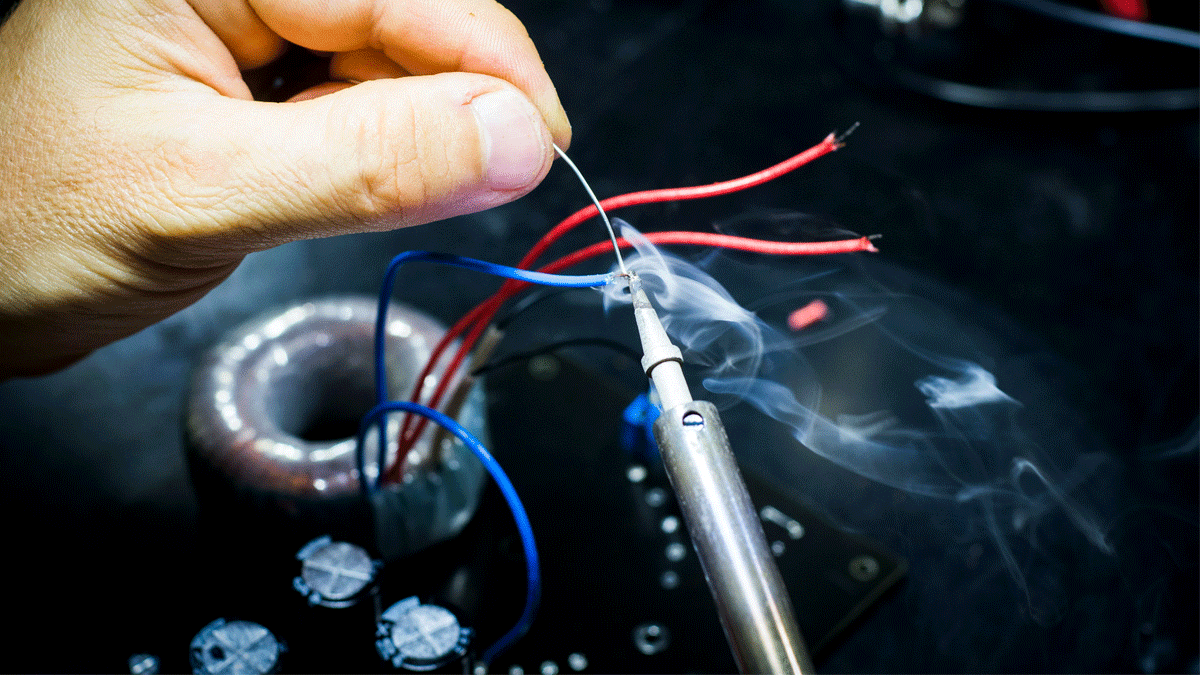Fusion cover. You might see it is included in your insurance policy but just what is it? And why do you need it?
As you look over your landlord insurance policy, you may find mention of 'fusion' cover. This has less to do with scientific types in lab coats making things go boom than what happens when a motor carks it!
When insurers talk about fusion they are referring to motor damage, and specifically damage to appliance motors caused by electrical currents or wiring. They aren’t talking about appliances getting old or breaking down (these things aren’t insurable), it is damage to the motor caused by an electrical fault which, in effect, caused the motor to “fuse” (think wiring melted together due to overheating, causing a short).
Fusion damage may happen because of:
- a power surge (sudden electricity spikes caused by, for example, overloaded circuits and damaged wiring) or
- an excessive electrical current (for example, fluctuations in electricity supply such as brownouts and voltage sags or dips, or lightning strikes).
As a result, the wiring in the motor of the appliance may burn-out.
A motor fusing often makes a snap, crackle or pop sound as it trips the RCD (safety switch) or circuit breaker (fuse). There might be a plastic melting or burnt smell. Neither of these things are good, and they usually mean the appliance motor is toast.
Now when it comes to landlord insurance claims, fusion might not automatically spring to mind as a common cause. But, each year, EBM RentCover pays dozens of claims for just that. Which makes having cover for electric motor burn-out a good idea.
When you think about it, even if you don’t offer a fully-furnished rental, there’s a really good chance that you do supply some appliances for tenant use – like built-in/ducted air conditioners and electric heaters, ceiling fans, dishwashers and electric ovens. You may also provide a fridge and freezer, stove, a washing machine and dryer, or the garage might have a motorised door. And they all have electric motors that could fuse due to an electrical fault caused by a power surge or excessive current (be aware that not all appliances are covered for fusion, so read the PDS).
Built-in appliances and whitegoods often come with high price tags, making replacement costly. Depending on the legislation in your jurisdiction, you may find that if these appliances fail, they come under the heading of “urgent repairs” too. Which means you can’t put off making the repair or replacing the item until you have the cash.
Fusion cover takes care of the reasonable cost of repairing or replacing burnt-out electric motors in household appliances that are included as insured contents. It is important to understand that the insurance does not cover the item if it is burnt-out due to normal wear and tear. There can be other exclusions on this cover – such as damage caused by faulty switches, fuses and heating elements, or caused by leaking refrigerator gas, or appliances that are under warranty or guarantee, or those located underground/submerged (e.g. pool pumps). All of these will be detailed in the PDS.
A fused motor may also cause smoke or fire damage to nearby objects and having fusion insurance can protect them too.
All EBM RentCover policies include fusion cover, but for many insurance providers it is an optional extra. Our policyholders are covered for appliances and motors up to 15 years old (some other providers only offer cover for appliances up to five years old), which means landlords with older properties and contents can often be covered for fusion damage. NOTE: Depending on your EBM RentCover policy, you may or may not be covered for certain types of fusion. For example, if you have RentCover Ultra (which does not offer cover for building), you will only be covered for fusion to fixed contents within the property – this excludes things like a garage door motor, as this forms part of the building. Meanwhile, if you have RentCover Platinum, you would be covered for appliances and motors that form the building too.
If the electric motor in an appliance in your rental burns out, you could be out of pocket by hundreds, if not thousands, of dollars. And while ensuring that the property is fitted with excellent surge protection and safety devices can reduce the risk of fusion damage, having a landlord policy that automatically offers this protection can offer you peace of mind.
*While we have taken care to ensure the information above is true and correct at the time of publication, changes in circumstances and legislation after the displayed date may impact the accuracy of this article. If you need us we are there, contact 1800 661 662 if you have any questions.
You may also like
View all
Here are some great reasons why reading your PDS could be the most valuable few minutes you spend this year...

While the current rental market may appear favourable for landlords, it also brings a shifting set of expectations, risks, and responsibilities…

Prevention is far better than cure and, when it comes to avoiding tenant-related heartache, good communication can be the key...



